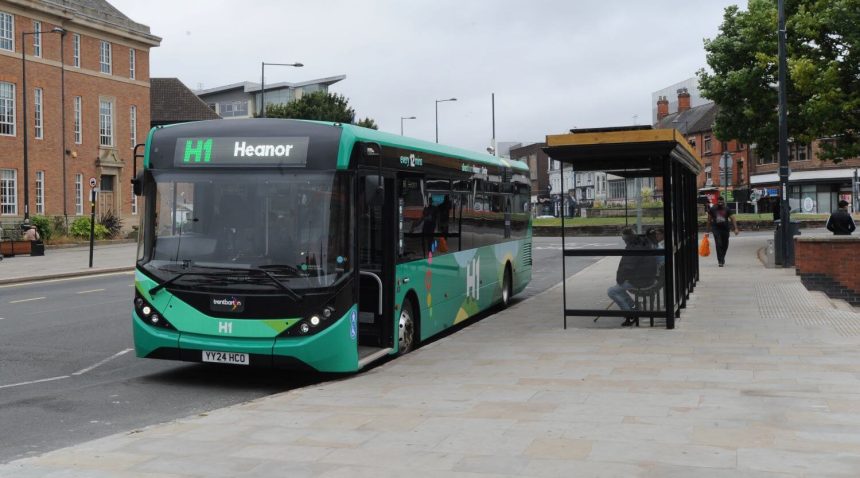Cuts to bus services were responsible for an estimated £2.6 billion reduction in England’s economy between in 2011 and 2023, according to new analysis by the Institute for Public Policy Research (IPPR) North.
The independent charity’s paper also calculates the impact of declining bus services on jobs and congestion.
It adds that cuts to bus provision were 10 times higher in England’s most deprived areas than its least deprived areas.
IPPR North has calculated that the total economic contribution of the operation of local bus services and spending of its passengers in local economies in England fell from £34.1 billion to £25.1 billion over those 12 years.
Accounting for spending that will have moved to other modes, its estimate was for a net reduction of £2.6 billion in gross value added.
The research concludes that 423,000 jobs in England were supported by bus services in 2023. However, it adds that this represents a 5% net fall (39,000) in jobs compared to if bus services had been maintained.
When it comes to the bus sector itself, IPPR North estimates the total employment fell over this time from 94,000 to 91,000.
The basis for the calculations is the charity’s scrutiny of the Department for Transport’s national bus statistics.
This showed the annual bus miles driven per head of population in England fell from 25 to 18 miles between 2011 and 2023 and the researchers say the reduction was felt 10 times more in deprived areas.
They add that as estimated £1.1 billion extra miles had been driven in cars and taxis in 2023 alone compared to if the service provision had been maintained.
The publication of the research coincides with the IPPR North paper Change You Can Board, which supports the government’s proposed Bus Services Bill.
Senior research fellow at IPPR North, Marcus Johns says: “Neglecting England’s buses has had serious environmental, social and economic consequences, which have not been felt equally.
“After years of decline, it’s time to turn buses around so that they can help grow our economy, connect people to opportunities, and reduce our emissions.
“The Bus Services Bill is a crucial chance to achieve this change. By devolving powers, supporting local leaders, investing in buses, and decarbonising the bus fleet faster, it should help rebuild local bus networks.
“The Bus Services Bill is set to empower local leaders to deliver change to get on board with.”
Silviya Barrett, Director of Policy and Campaigns at Campaign for Better Transport, adds: “Bus cuts are harmful wherever they happen, but these disproportionate cuts to deprived areas are deeply concerning, not least because our own research into ‘left-behind neighbourhoods’ shows how poor transport connectivity exacerbates deprivation.
“Buses are vital to people up and down the country, but especially to those on low incomes, for getting to work and college, shops and services, and for combating loneliness.
“The Buses Bill is a real opportunity to turn around the fortunes of buses. This will happen via franchising in some areas, but local authorities where franchising is not appropriate will need funding and support to better connect communities.
“We are also calling for a Bus Service Guarantee to be included in the Bill, to ensure that all neighbourhoods that have been hit by cuts over the years have at least a minimum level of service.”



























